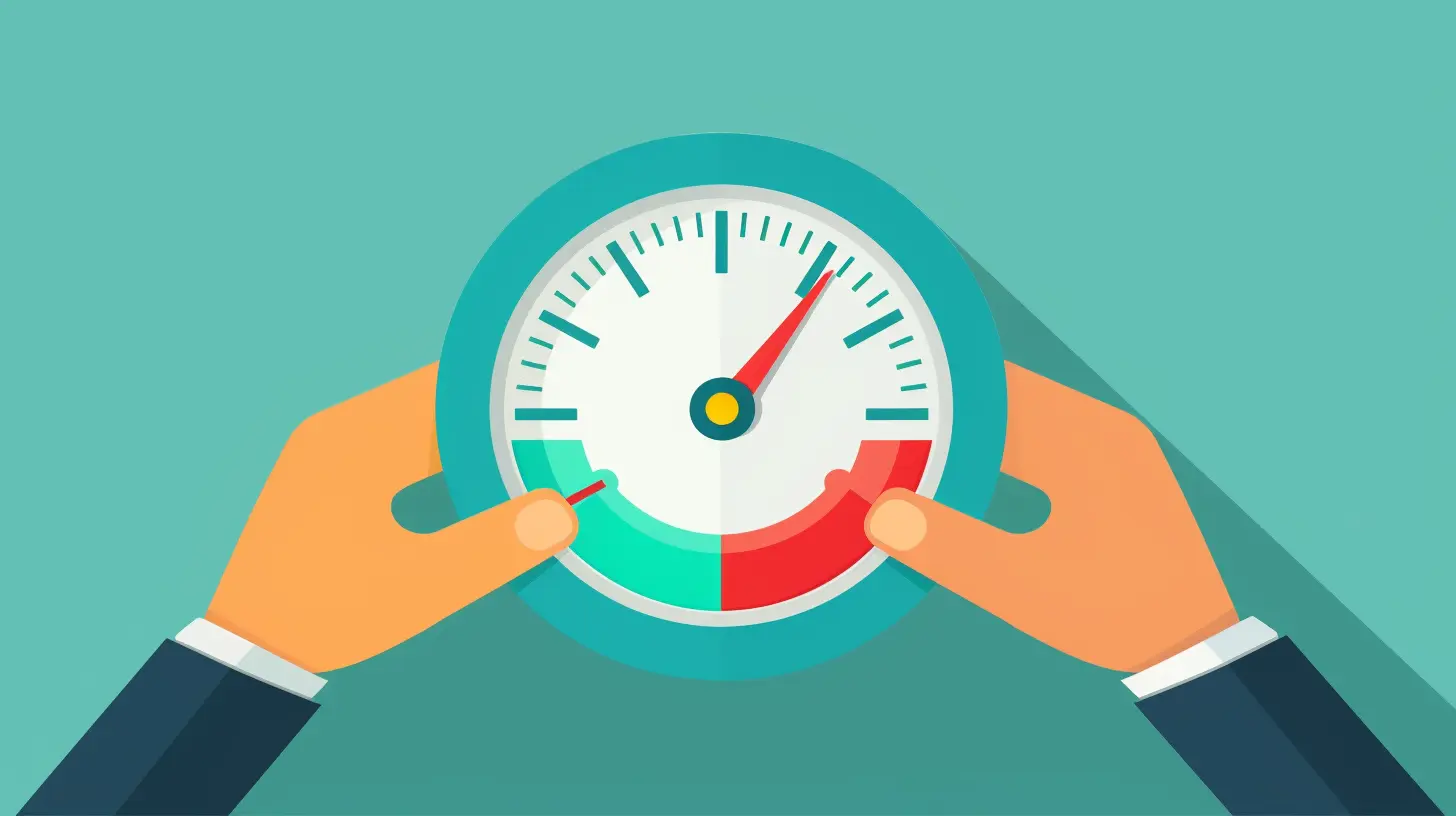Understanding the Different Credit Score Ranges
12 November 2025
Let’s be honest—credit scores might just be one of the most puzzling parts of adulting. You hear about them all the time: from banks, credit card companies, even your landlords. But what do they really mean? More importantly, what do those numbers say about you?
Don't worry, you're not alone in this credit score mystery. So, grab a cup of coffee (or tea, if that’s your vibe), and let’s unravel this financial enigma together. This isn’t a lecture—it’s a crash course in understanding those three-digit numbers that can make or break your financial journey.
What Is a Credit Score, Really?
Alright, let’s start from scratch.A credit score is basically your financial trust rating. Think of it as the adult version of a report card, except instead of math and science, it’s all about how well you manage your money, especially debt.
This number usually ranges from 300 to 850. The higher your score, the better your chances of getting loans, credit cards, or even a rental apartment. But where do these numbers come from, and what do they mean?
Let’s dive into the different ranges and what they reveal about your financial health.
Credit Score Ranges at a Glance
Here’s a quick cheat sheet before we dig deeper:- 300–579: Very Poor
- 580–669: Fair
- 670–739: Good
- 740–799: Very Good
- 800–850: Exceptional
Now, let’s break each one down one by one—no fluff, just the real deal.
300–579: The “Very Poor” Zone
Okay, let’s not sugarcoat it—if your score falls in this range, creditors probably see you as high-risk. But hey, don't freak out. A low credit score doesn’t mean you're doomed forever. It just means you've got some work to do.What This Score Says About You
Chances are, you've missed a few payments, defaulted on a loan, or maybe even dealt with collections. Maybe life threw a curveball your way—job loss, medical bills, or simply a lack of financial education.Guess what? You're not alone. And the good news? Credit scores aren't permanent. They fluctuate based on your habits.
How Lenders See You
Getting approved for credit in this range is tough. If you do get approved, expect sky-high interest rates and maybe little to no borrowing power. Some landlords and employers might also raise an eyebrow at this number.
580–669: The “Fair” Ground
Now we’re inching closer to healthier territory. This is where creditors start breathing a bit easier—but still keep a close watch.What This Score Says About You
You may have some blemishes on your report, like late payments or high credit usage. But there’s progress. Maybe you’re rebuilding credit. Or perhaps you're just starting out and still establishing a history.How Lenders See You
You might qualify for credit, but likely not the best rates. Think of it as being invited to the party—but only allowed in after proving you won’t spill the punch.670–739: The “Good” Life
This is where things start getting exciting. If you’re in this range, give yourself a little pat on the back—you’re doing quite well.What This Score Says About You
You're responsible. You make payments on time, keep balances in check, and probably have a few years of credit history under your belt.How Lenders See You
You're a low-to-moderate risk. Most lenders will work with you, and you’ll likely qualify for decent interest rates and terms. You're not yet elite, but you're in the club.740–799: The “Very Good” Vibes
Alright, now we’re talking. This is where you start unlocking serious perks.What This Score Says About You
You’ve mastered the art of credit. Low balances, on-time payments, diverse credit types—you’re basically the Hermione Granger of personal finance.How Lenders See You
Trustworthy, reliable, golden. You’ll often snag better interest rates, premium rewards cards, and higher credit limits. Oh, and landlords and employers? They love this range.800–850: The “Exceptional” Elite
If you’re in this range, stop reading for a second and do a little happy dance. This is the credit score equivalent of having a private table at the hottest restaurant in town.What This Score Says About You
You’ve got the system figured out. You’ve likely had credit for years, always pay on time, use only a small portion of your limits, and keep everything squeaky clean.How Lenders See You
You’re the unicorn. Lenders practically throw money at you (responsibly, of course). Expect the best terms, rock-bottom interest rates, and access to exclusive financial products.The Big Question: What Affects Your Credit Score?
Now that you know what each range means, you're probably wondering—how exactly is my credit score calculated?Great question. Here's a quick breakdown:
| Factor | Weight |
|--------|--------|
| Payment History | 35% |
| Amounts Owed (Credit Utilization) | 30% |
| Length of Credit History | 15% |
| New Credit | 10% |
| Credit Mix | 10% |
Let’s unpack these without boring you to tears.
1. Payment History – 35%
This is the biggest chunk. Missed or late payments are like red flags. On the flip side, consistent payments give your score a warm, fuzzy boost.2. Credit Utilization – 30%
This one’s a bit sneaky. If you’re using too much of your available credit, lenders start sweating. Ideally, stay below 30% of your total limit.3. Length of Credit History – 15%
This one’s all about time. The longer your accounts have been active (especially the oldest one), the better. It shows stability.4. New Credit – 10%
Opening too many accounts too fast = risky business. Each time you apply for new credit, it can ding your score temporarily.5. Credit Mix – 10%
Do you only have credit cards? Or a healthy blend of cards, loans, maybe even a mortgage? Having a mix shows you can juggle different types of debt.Why Your Credit Score Matters More Than You Think
It’s easy to dismiss your credit score as “just a number,” but in reality, it impacts more than you realize.- Want to buy a home? Credit score.
- Need a car loan? Credit score.
- Renting an apartment? Yep—credit score.
- Applying for a new job in finance? You guessed it.
It even affects things like insurance premiums and utility deposits. Like it or not, your credit score is like your financial reputation—and it follows you everywhere.
How to Level Up Your Credit Score
If you're not where you want to be, don’t sweat it. There’s always room for improvement—and yes, even those with poor scores can rise like a phoenix from the ashes.Here’s how to start:
- Pay on time, every time – even if it’s just the minimum.
- Keep your balances low – aim for under 30% usage.
- Don’t close old credit cards – they help your history.
- Limit new credit applications – pace yourself.
- Check your credit reports – mistakes happen.
Think of building credit like building muscle. It takes time, discipline, and consistency—but it’s totally doable.
Common Myths About Credit Score Ranges
Let’s bust a few myths while we’re here, shall we?Myth 1: Checking your own score hurts it
Nope! That’s a "soft" inquiry and has zero impact. In fact, checking it regularly can help you catch issues early.Myth 2: You need to carry a balance to build credit
Wrong again. Paying off your card in full each month is even better. Interest is just extra money you’re giving away.Myth 3: Closing cards improves your score
Actually, it might hurt it—especially if it shortens your credit history or raises your utilization ratio.The Bottom Line
Understanding the different credit score ranges isn't just about numbers—it's about understanding your financial story. Whether you’re rebuilding, just starting, or already crushing it with a stellar score, knowing where you stand is the first step toward financial freedom.So, next time someone throws around the term “credit score,” you won't just nod and smile—you’ll actually know what it means, where you stand, and how to make it work in your favor.
Because let’s face it: life’s a lot easier when your credit score’s got your back.
all images in this post were generated using AI tools
Category:
Credit ScoreAuthor:

Zavier Larsen
Discussion
rate this article
1 comments
Vanya Miller
Understanding credit score ranges is crucial for managing personal finance. Each range—from poor to excellent—affects loan eligibility and interest rates, highlighting the importance of maintaining a good score.
November 12, 2025 at 5:36 AM

Zavier Larsen
Thank you for highlighting the significance of credit score ranges! Understanding them is essential for making informed financial decisions.


